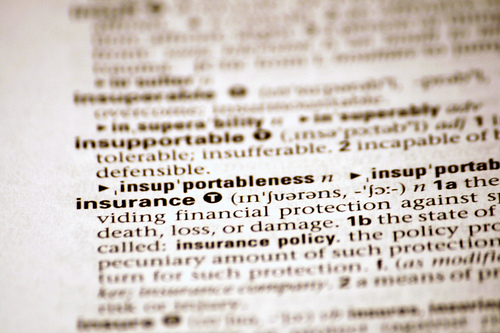 Do you buy health insurance on your own? One important piece of the Affordable Care Act (“Obamacare”) is the insurance exchanges. If you get your health insurance through your employer or Medicare, it is likely little will change with your existing plan. These exchanges will be operated by either your state government, federal government or a hybrid of the two.
Do you buy health insurance on your own? One important piece of the Affordable Care Act (“Obamacare”) is the insurance exchanges. If you get your health insurance through your employer or Medicare, it is likely little will change with your existing plan. These exchanges will be operated by either your state government, federal government or a hybrid of the two.
If you do purchase health insurance on your own, further information on the timeline and process are included below.
- October 1, 2013 – open enrollment starts
- January 1, 2014 – coverage starts
- March 31, 2014 – open enrollment for 2014 ends
As a reminder, beginning next year those that do not obtain health insurance could pay a tax penalty of 1% of their family income, or at least $95. Those penalties increase in 2015 and 2016. If you buy through the exchanges, tax credits are available for incomes up to 400% of the poverty level.
Healthcare Exchange Medal Coding
Details are still coming out, but in summary you are likely to see four different levels of plans.
- Bronze – should cover 60% of the average person’s health care costs
- Silver – should cover 70% of the average person’s health care costs
- Gold – should cover 80% of the average person’s health care costs
- Platinum – should cover 90% of the average person’s health care costs
Bronze plans should have the lowest premiums and platinum the highest, but prices can vary widely. Under the law, the maximum annual out-of-pocket expenses are capped at $6,350 for a single person and $12,700 for a family. The best rates and co-pays will apply to in-network providers, so it will be important that you are comfortable with the choices of doctors and specialists.
Furthermore, if you and your family are relatively healthy and have a “rainy day fund” available, it may make sense to look at the lower premium, higher deductible plans (i.e. Bronze). If it meets the right deductible requirements, you’ll be able to open a Healthcare Savings Account (HSA). HSAs have annual contribution limits of $6,550 in 2014 and these contributions are tax-deductible with no income limit. We’ll be discussing further information about Healthcare Savings Accounts in an upcoming post.
One additional important point worth mentioning is the potential flexibility the exchanges provide for those individuals looking to switch jobs, start a business or retire early. That is because insurers will be required to offer coverage to anyone and everyone, without any exclusions for pre-existing conditions and without any underwriting based on individual health issues.
In summary, if you purchase your own health insurance, speak to a financial planner to make sure you understand all your options with The Affordable Care Act, and ways to potentially save money.
Photo credit: Alan Cleaver

